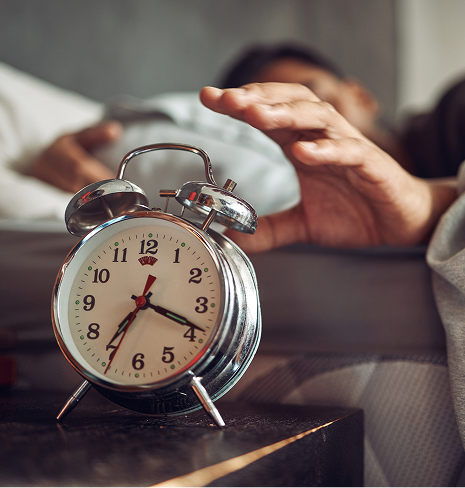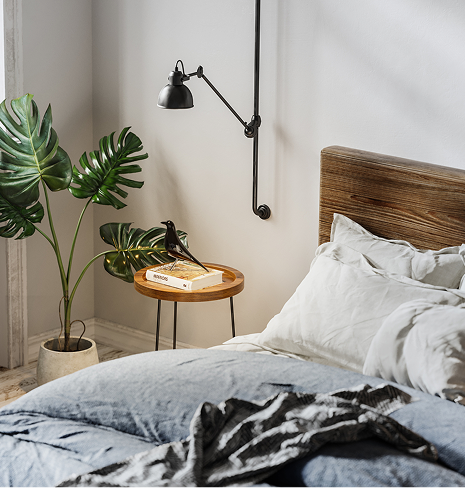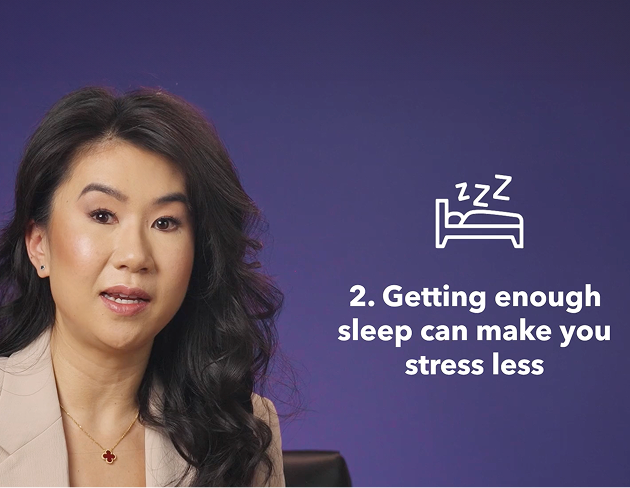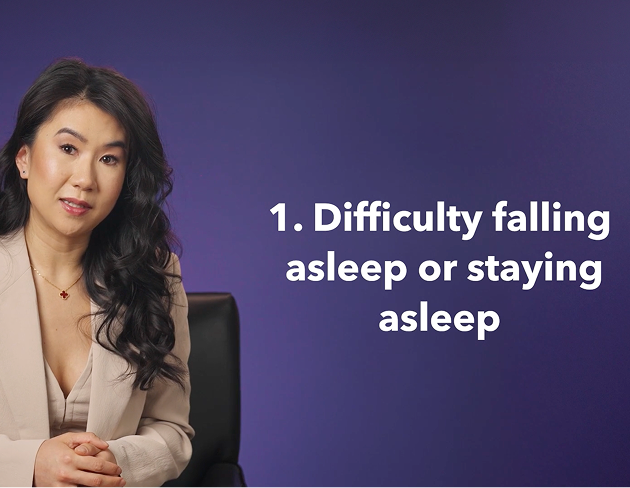This blog post was written by Dr. Stephanie Liu (Dr. Mom)—Family Physician and Assistant Clinical Professor at the University of Alberta—for SleepDebt.ca, a website developed by Eisai Limited.
If you’re struggling to get enough sleep, then it may be time to consider implementing some practices and routines to better support your sleep goals. A few things that may help include:
Getting exercise and exposure to natural light
Physical activity and exposure to sunlight is beneficial for mental health and for helping regulate the sleep cycle.
Going to sleep and waking up at the same time each day
Having a consistent sleep schedule can help to regulate your internal body clock.
Establish a calming bedtime routine
Switch off your devices an hour before bed and focus on calming activities and rituals that help you wind down for rest. You might like to try different things like reading, mindfulness/meditation, breathing exercises, or taking a nice, warm bath.
Review your sleep space
When it comes to quality sleep, the environment around you is so important. Your bed should feel like a calm, relaxing space, and it should be reserved for sleep and sex only. Keep the room cool and dark and consider investing in a good-quality mattress and pillows.
Don’t overstimulate yourself
Avoid caffeine in the afternoon and consider reducing your consumption of nicotine and alcohol. These can all interfere with your ability to fall asleep.
Seek counselling
Cognitive behavioural therapy (CBT) is a type of counselling that examines patterns of thinking and works with patients to reformulate negative thoughts in new ways. For many people, reframing thinking can improve both sleep and mindset. There are different types of CBT for specific problems, such as depression and anxiety and even insomnia. In fact, studies have shown that CBT for insomnia (CBT-I) not only helps improve sleep but may also reduce symptoms of many mental health conditions and improve emotional well-being.
Please see your healthcare provider if your difficulty sleeping persists.
Everyone has the occasional rough night of sleep—it could come down to being physically disturbed (e.g., by children waking, a dog barking, or a loud party), or it could be because you’re worried or excited about something and find it difficult to wind down for sleep. However, when inadequate sleep becomes a regular occurrence or if you’re struggling with persistent anxiety or low mood, it’s important to reach out to your healthcare provider for support to discuss other treatments such as medications.










